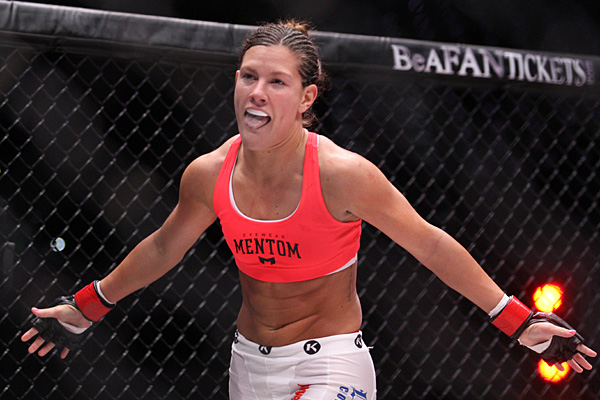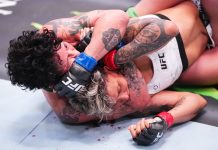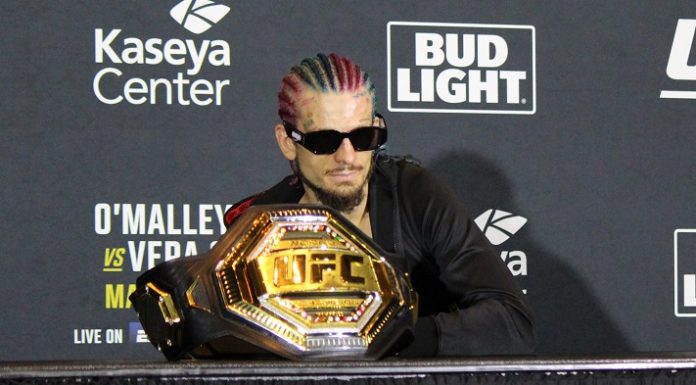
It’s a thing of nightmares: a professional fighter (or any professional athlete really) competing at the top their sport, clean, but fails a drug test due to a false positive. Thanks to the rapid spread of information in the media and on the Internet, the stigma of being a “cheat” is there instantly — and it’s awfully hard to wash off. Google, after all, has a long memory. Cortney Casey is going through this very nightmare right now, and the UFC have released a statement in her support.
Lets recap: at UFC 211 last month, Casey defeated fellow strawweight Jessica Aguilar by unanimous decision. Then, on May 26, the TDLR (Texas Department of Licensing and Regulation) released a statement saying she had failed a drug test, was suspended 90 days, and that her win was overturned to a No Contest.
One problem: the test didn’t show any performance enhancing drug use, and it seems proper protocol was not followed. Bloody Elbow has an excellent break down of the matter, which can be found here. The long and the short of it is, Casey failed for a slightly elevated T:E ratio (testosterone to epi-testosterone), which generally requires follow-up testing to see if an illicit substance is the cause for the elevated levels. The TDLR didn’t do any follow-up testing, but announced Casey as a cheat regardless. USADA (the U.S. Anti-Doping Agency, which runs the UFC’s out-of-competition drug testing program) has done follow-up testing on her, and found no fault on the part of the athlete.
Despite this, the folks in Texas haven’t budged.
Today, the UFC released the following statement on the matter:
“UFC has made it very clear that it takes anti-doping very seriously, instituting the most comprehensive anti-doping program in sports. One of the keys to this program, and any effective, world-class program, is ensuring that all athletes are treated to proper due process.
“UFC strawweight Cortney Casey’s recent case, stemming from her fight in Dallas on May 13, 2017, is a perfect example of the type of negative and damaging backlash for an athlete resulting from a false-positive. There is no better example than this for the need to have proper due process and testing in combat sports and professional sports anti-doping.
“Following the results of the additional tests at the WADA accredited laboratory, proving that Cortney did not cheat nor break any rules, UFC is requesting that the Texas Department of Licensing and Regulation (TDLR) immediately reverse its ruling and exonerate Cortney of any wrongdoing.
“UFC has offered, and continues to offer Texas and any other Commission and regulatory body around the world, the world-class expertise and experience of USADA, to assist them in properly carrying out anti-doping efforts in their state or country.”
The TDLR has yet to respond, but hopefully, they’ll understand how damaging this can be to an athlete’s career.


















